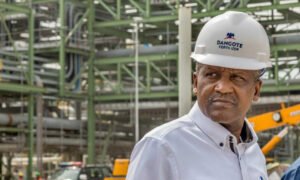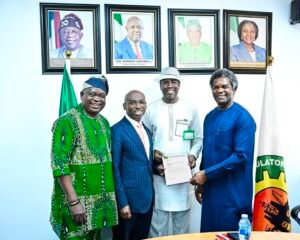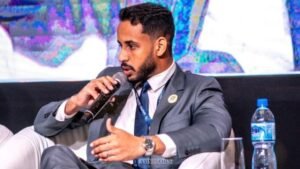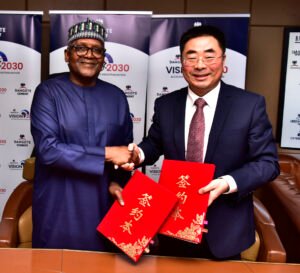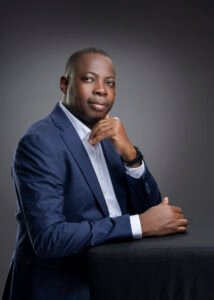
Jason Kasuto is a development finance and public policy expert with over 15 years’ experience as well as the current Chairperson of the Economic Association of Namibia. In this insightful interview with the African Association of Energy Journalists and Publishers, AJERAP, he speaks on a wide range of issues, including Namibia as a preferred investment destination and what the Namibia Oil and Gas Conference 2025 holds for participants, sponsors, exhibitors and visitors.
Generally, what economic potential does Africa hold as a global investment destination, and how much of the resources abound in Namibia?
Firstly, Africa’s economic potential lies in its most valuable resource, which is its people. We’ve got a youth demographic dividend with a strong youth bulge, a younger population. With that comes innovation and a spirit of wanting to do better as a generation. So I think that there lies the first resource that has the potential to take the abundant resources that Africa has and transform that from scarcity to abundance.It is a known fact—and not to sound repetitive—that Africa abounds with a lot of natural resources. In the energy space, with our fossil fuels; and in the renewable space, with our abundant sunshine and wind, especially for Namibia. This positions us as a continent at the cusp of leapfrogging the energy revolution for Africa and contributing more value-added products to the global market, provided that we are able to negotiate better and in a manner that creates a win-win between Africa and its partners. But Africa is the future.
Can you walk us through Namibia’s socio-political and economic evolution, highlighting key milestones and challenges?
At independence in 1990, Namibia had a much smaller GDP. We had a lower infrastructure base and high rates of poverty. With independence, we really should applaud the first government because we saw an infrastructure boom.Our GDP grew by over 1,000% from the period of 1990 to 2015. So that signified real investment in the country that allowed for local economic development to take place. One can say that there has been a social, political, and economic evolution since Namibia’s independence. Namibia has been able to invest in road infrastructure. To date, we still rank amongst the top and, at times, the best road infrastructure on the continent. Namibia has been able to achieve peace and stability, having gone through four presidents peacefully who had served their terms, except for our late president who unfortunately passed on at a later stage of his term. We have now welcomed the first female president, which signifies our commitment to equality and diversity, and are now focusing on taking on the last baton to achieve Vision 2030. This administration—likely this eighth administration—is tasked with being that last runner towards Vision 2030 to ensure that the priorities linked to improving the standard of living of every Namibian, so that it is dignified, are achieved
.What policies have been put in place to attract and retain local and foreign investors, and how effective have they been?
Namibia is an attractive investment destination, both for work and leisure. We have a stable democracy, an independent judiciary, an advanced financial system and financial sector, which makes the ease of transactions very good.From a policy perspective, I think that the government has been able to create an environment that can attract and retain foreign direct investment. Of course, currently, the Investment Promotion Bill should be enacted this year. I think the industry and investors, both locally and internationally, are looking forward to that investment for the purposes of clarity. To date, we’ve got no backlash in terms of the existing policies or policy environment from an FDI perspective.We respect the rule of law and the rights of property and generally promote industry. Namibia’s main vision is to industrialise by a certain time, and that will require us to partner with those who would see through a mutually beneficial investment arrangement.
What role does the Economic Association of Namibia (EAN) play in the nation’s economy, and how does it support economic growth and development?
The Economic Association of Namibia stands by its mandate to be a thought leader within the Namibian economy—to bridge the gap between government, private sector, and civil society in a manner that places influence in shaping public policy and discourse.We’re really happy with the advancements. The Economic Association of Namibia, as a leading think tank in Namibia, has been able to bring the conversations to a policy level, make the conversations relevant to the nation, and break down complex—or what people would see as complex—subjects into digestible or understandable narratives for people. For the men and women on the street to be able to understand the basics and sometimes what is seen as complex from an economic point of view. We stand for discussing what matters and playing a role in influencing policy around that, in a manner that benefits our country and promotes the local economic development of Namibia and Namibians.
Can you provide an overview of the 2025 Namibia Oil and Gas Conference, including its objectives and expected outcomes?
The Namibia Oil and Gas Conference 2025 is an exciting event because we’ve got quite a number of new add-ons to the conference. The conference, slated for the 12 – 15 August 2025, will start off with masterclasses. Those masterclasses will look at supplier and local content requirements to guide some of our SMEs in the sector—from experienced suppliers, obviously—in terms of how to position and take advantage of participating in the value chain.We’ve got a masterclass around future generations and outlook—so quite some interesting stuff. Then we segue the next day into the official opening by our leadership in Cabinet. The confirmations have come from the Prime Minister of the country, the Deputy Prime Minister, and the Minister of Mines and Energy.We will then cover a range of topics, but the conference is divided into two platforms that happen at the same time. One looks at strategy—topics related to what is currently happening in the industry, what the future outlook is, what are some of the key considerations and lessons from other nations. Then you’ve got the technical rooms that will look at subsea issues of a more technical nature and of specific interest as far as Namibia is concerned and the industry.Both have got audiences, and delegates will have the opportunity to switch between and across throughout the conference. This year, on the 13th and the 14th, we’ve decided to add a business matchmaking day. This allows for matchmaking between potential investors, businesses, suppliers, and the value chain in the industry. So there’ll be B2B matchmaking.We’ve done this intentionally to go beyond the presentations and panel discussions—so that there’s some actual engagement that eventually can lead to deals. In the future, we see the conference having a good segment of deal-making for the benefit of the industry and the benefit of the country. We will have a much larger exhibition platform due to demand, and we look forward to a very stimulating Namibia Oil and Gas Conference 2025.
What can attendees expect based on the conference theme, selected speakers, exhibitors, sponsors, and partnering organizations?
Actually, our conference main theme is From Exploration to Action: Positioning Namibia as the New Energy Frontier. It’s important that we locate ourselves in the phase of action, and we’re very happy with that landing platform.The conference is divided into various themes. I’ve mentioned before that we will start with masterclasses, and then we will look at what the current outlook is for Namibia. We’re looking at unlocking opportunities within the industry, at the legislative and policy environment, local content, key investment considerations, infrastructure readiness, and we are also looking at some technical aspects—from drilling to some of the issues that are on a more technical basis.We’re also looking at financing and funding the value chain for local suppliers to be able to participate, and what innovation exists and support exists around that. We’re looking at MOUs being signed with the Petro Fund Namibia, who have played quite a key role in upskilling numerous students and those in the oil and gas industry and those careers.It is a full-circle, 360-degree look at the industry in Namibia, the future outlook, and being able to have the discussions that make a meaningful impact and shape policy. We then end the conference on the last day with a business-to-business matchmaking day, which we believe will be very productive and add lots of value to delegates.


